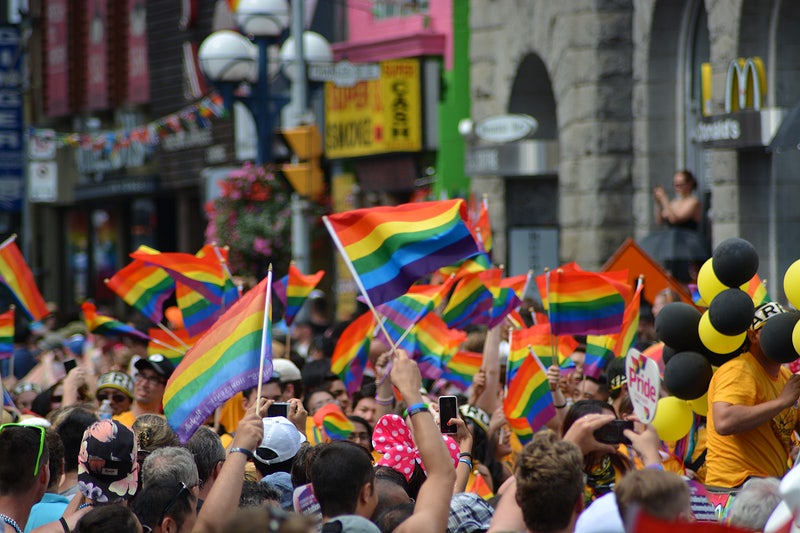An unnecessarily controversial topic in American education today revolves around the LGBTQIA+ community and its inclusion in our classrooms. I say this is unnecessary because the absolute vitriol behind this is insane. We are talking about children learning how to express themselves and understand themselves safely. It is important to offer safe spaces for children to experiment and learn about themselves; our job as teachers is to educate but also safely guide these students through their most formative years.
 |
| A large group of people waving rainbow flags in support |
Firstly, and I cannot stress this enough, it is so important to allow children to ask uncomfortable/taboo questions. Children are going to notice things in the world - this includes people of different races, gender non-conforming people, disabled folks, and so on. They might not understand what they are seeing, so they're going to ask. A child should not be shamed for asking a genuine question, even if it comes off as insensitive. As long as they are not deliberately hateful, these questions should be welcomed. As teachers, our children might come across uncomfortable themes we are required to teach in novels (the n-word in
To Kill A Mockingbird, for example). However, creating a safe space for questioning does not mean allowing other children to bully others. In the same way we wouldn't let a child mock their classmate with autism, students are not allowed to make a mockery of queerness.
Secondly, a classroom library (if allowed by state laws) should be full of diverse books. A Black student should be able to find a book about Black happiness, and a queer student should be able to readily find a queer novel. It might be hard to argue for introducing queer novels into the lesson plan, so subversive teaching is your friend. For example, if you are teaching The Great Gatsby, you might hint at the queer themes in the novel. Leave the floor open for queer readings or connections. In the novel Things Fall Apart, we tend to focus on the masculinity of Okonkwo and his downfall, but why not focus on the queer possibilities of his son Nwoye? It's possible to find any kind of inkling of queerness from most novels in the canon, and I think it is important to at least try and open up the floor for these interpretations.
While it's important to find ways to teach about queer interpretations and themes, it's also important to recognize that this is a battle queer teachers and students have to fight for. We are losing our rights rapidly - from the anti-queer bills passing in Florida to Tennessee's recent ban on drag, we are in danger. Our classrooms need to be safe spaces, but we need to be ready to fight in courtrooms. Protect our books and protect our queer youth.


No comments:
Post a Comment